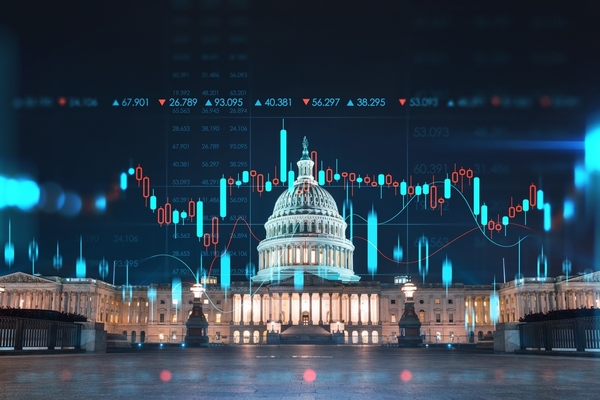Congress’s apparent attempt to implement a stock trading ban while in office failed to make it to a vote last week during the House’s final three days in session before midterm elections.
With conveniently just three days until a month-long recess, leaders in the House released the proposed text for a bill that would ban government officials from trading stocks last Tuesday.
Unsurprisingly, it failed to even get to a first vote, but appeared to be a good attempt at doing what the vast majority of the public is in support of. A new poll indicates that over 70% of Americans would like to see this rule implemented.
Even with current laws in place that prohibit insider trading, it’s become apparent that members of Congress do just that with insider knowledge not accessible to the public. Politicians have become as wealthy as can be after heading to the Swamp, somehow doubling or tripling their net worth in a matter of years.
Most recently, a report found that Dr. Fauci’s net worth skyrocketed from $7.6 million in 2019 to $12.6 million by the end of 2021. This is the case with many government officials because they hold power that can help them both predict and influence stock market trends.
The most commonly questioned politician when it comes to stock trading is Nancy Pelosi, whose net worth stands at $135 million – with a salary of $210,000. Because of her remarkable success in trading, there’s even a Nancy Pelosi stock tracker Twitter account that monitors her latest moves as a tell tale sign for what to expect in the market.
The tracker recently reported that the Pelosi’s bought 25,000 shares of Microsoft in 2021 just weeks before the U.S. Army announced a $22 billion contract with the company. In another example of “coincidences,” Pelosi sold 25K shares of $NVDA in August weeks before the government told the company to stop selling to China.
It’s not just one side of the aisle either. After receiving private reports on Covid in January 2020, Republican Senator Richard Burr sold over $1 million in stocks, which was also immediately done by his family. Just one month later, the stock market fell by 30%, the steepest drop in history. Burr had access to non-public information on response efforts for a possible pandemic.
These sketchy dealings go unpunished when they’re clearly in violation of law, something legislators make, but don't seem to follow. It’s hypocritical, and quite frankly outrageous when the IRS has decided to closely monitor regular Americans' Venmo transactions over $600.
"I don't think this bill was written to pass the House," said Rep. Abigail Spanberger. “Rather than bring Members of Congress together who are passionate about this issue, leadership chose to ignore these voices, push them aside, and look for new ways they could string the media and the public along — and evade public criticism."
Bills restricting conflict of interest compensations have been introduced many times including in 2015, 2017, 2021. After being introduced, these bills have all conveniently failed to come to fruition.
The image portrayed this past week by House members is that Democrats, including Pelosi, are all for this ban. Except they did nothing and Congress is now officially out of office.
It's a show played by politicians and it’s time it ends. Convention of States can help this abuse using government status and insider information end by putting in congressional term limits. That way, Pelosi, Burr and the other wealthy politicians don’t end up using the system for decades just for their own benefit.
Join us in pushing for term limits, limits to federal spending, and restrictions on federal power. It’s up to the people to advocate for permanent change, because the system will never voluntarily do so.






